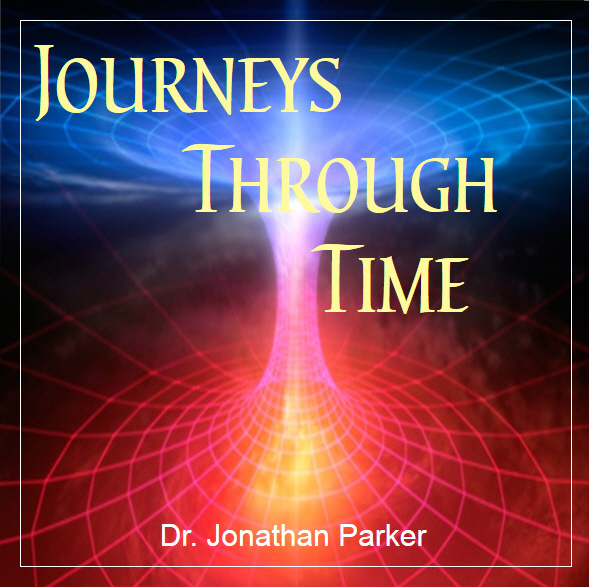Exploring Reincarnation Beliefs

Before diving in, please note: This post is for informational purposes only. If you’d like to know more about how we approach topics, feel free to check out our friendly Disclaimer Page.
Hey there, amazing readers! 🖐️ Just a quick note: yes, we know there are a lot of ads here. Trust us, we get it—it’s not the prettiest look, but they help us keep this blog alive and kicking. Those pesky little ads cover the costs of all the behind-the-scenes magic, from hosting and tech stuff to creating content we hope you’ll love.
We’re committed to delivering quality posts, and your support (even just sticking around despite the ads) means everything to us. So, bear with us, and thanks for helping us keep the good vibes rolling. Now, on to the fun stuff! 😉
TRANSLATE BUTTON AT THE END OF THE ARTICLE
Introduction to Reincarnation Beliefs
Reincarnation beliefs have intrigued humanity for centuries, offering a glimpse into the possibility of life beyond our current existence.
The idea that our souls can be reborn into new bodies after death is a concept that has been deeply ingrained in various cultures and religions worldwide.
This belief suggests that the journey of the soul is not limited to a single lifetime but rather spans across multiple incarnations, each one offering opportunities for growth, learning, and spiritual evolution.
While reincarnation is often associated with mystical and spiritual practices, it has also caught the attention of scientists and researchers who seek to explore the phenomenon from a more empirical perspective.
The concept of past lives, karma, and the interconnectedness of all beings are central themes in reincarnation beliefs.
Whether viewed through a lens of faith or science, the idea of reincarnation continues to captivate individuals seeking to understand the mysteries of life and death.
Historical Roots of Reincarnation
The roots of reincarnation beliefs can be traced back to ancient civilizations such as ancient Egypt, India, Greece, and China.
In these cultures, the idea of the soul’s journey through multiple lifetimes was a common belief that influenced spiritual practices, philosophical teachings, and cultural traditions.
For example, in Hinduism, the concept of samsara – the cycle of birth, death, and rebirth – is a fundamental tenet that underpins the religion’s worldview.
Greek philosophers like Pythagoras and Plato also explored the idea of reincarnation, suggesting that the soul is immortal and undergoes a process of transmigration from one body to another.
These early thinkers laid the groundwork for the development of reincarnation beliefs in Western philosophy and spirituality.
Throughout history, various religious and spiritual traditions have embraced the concept of reincarnation, each offering its unique interpretation of the soul’s journey through multiple lifetimes.
Understanding the Concept of Karma
Central to many reincarnation beliefs is the concept of karma, which is the idea that our actions in this life have consequences that extend beyond our current existence.
The law of karma suggests that the choices we make and the deeds we perform influence our future experiences and determine the circumstances of our next incarnation.
Positive actions lead to positive outcomes, while negative actions result in suffering and setbacks in future lives.
Karma is often seen as a moral and ethical principle that governs the cycle of birth, death, and rebirth.
It is believed that individuals accumulate karma throughout their lifetimes, shaping their destiny and influencing the lessons they must learn in subsequent incarnations.
The concept of karma underscores the interconnectedness of all beings and emphasizes the importance of living a virtuous and compassionate life to break free from the cycle of reincarnation.
Different Cultural Views on Reincarnation
Reincarnation beliefs vary across different cultures and regions, reflecting the diversity of human perspectives on life, death, and the afterlife.
While some cultures embrace the idea of reincarnation as a natural part of existence, others may view it with skepticism or even fear.
In countries like India, Tibet, and Japan, reincarnation is a deeply ingrained belief that influences religious practices, cultural norms, and social attitudes towards death and rebirth.
On the other hand, Western societies have historically been more skeptical of reincarnation, often associating it with New Age philosophies or fringe beliefs.
However, in recent years, there has been a growing interest in reincarnation among Western audiences, fueled by accounts of past life memories, near-death experiences, and the work of researchers investigating the phenomenon.
As globalization continues to bring diverse cultures together, the exchange of ideas about reincarnation has led to a more nuanced understanding of this complex and multifaceted belief.
Scientific Investigations into Reincarnation
While reincarnation is primarily a spiritual and philosophical concept, some researchers have sought to explore the phenomenon through scientific inquiry.
One prominent figure in the field of reincarnation research is Dr.
Ian Stevenson, a psychiatrist who conducted extensive investigations into cases of children who claimed to remember past lives.
Stevenson’s work documented numerous compelling cases of young children who displayed detailed knowledge of people, places, and events from a previous life, which they could not have known through normal means.
Stevenson’s research, along with the work of other scientists and scholars, has raised intriguing questions about the nature of consciousness, memory, and personal identity.
While the scientific study of reincarnation remains a controversial and often marginalized field, some researchers believe that studying cases of past life memories may offer insights into the nature of consciousness and the continuity of the self beyond physical death.
Past Life Regression Therapy
Past life regression therapy is a therapeutic technique that aims to help individuals explore their past lives through hypnosis or guided imagery.
During a past life regression session, a trained therapist guides the individual into a relaxed state of consciousness where they can access memories, emotions, and experiences from previous incarnations.
The goal of past life regression therapy is to uncover unresolved issues, traumas, or patterns that may be influencing the individual’s present life and to facilitate healing and personal growth.
While past life regression therapy is considered controversial within the field of psychology, some proponents believe that it can provide valuable insights and promote self-discovery.
By exploring past life memories, individuals may gain a deeper understanding of their relationships, fears, and talents, as well as insights into their life purpose and spiritual journey.
Critics, however, caution that the memories accessed during past life regression may be influenced by imagination, suggestion, or cultural beliefs, rather than genuine recollections of past lives.
Cases of Reported Past Life Memories
There have been numerous documented cases of individuals who claim to have memories of past lives, often from a very young age.
These cases typically involve children who spontaneously recall detailed information about places, people, and events that they could not have learned through normal means.
In many instances, these children exhibit behaviors, phobias, or skills that seem to correspond to their reported past life memories.
One famous case is that of James Leininger, a young boy who claimed to remember being a World War II pilot named James Huston Jr.
James recounted specific details about his alleged past life, including the aircraft he flew, the ship he took off from, and the mission he was on when he was shot down.
His parents were initially skeptical but were amazed by the accuracy of James’s memories, which were later corroborated by historical records.
These cases of reported past life memories raise intriguing questions about the nature of consciousness, personal identity, and the continuity of the self beyond death.
While skeptics may attribute these memories to coincidence, false memories, or fantasy, proponents of reincarnation beliefs see them as evidence of the soul’s journey through multiple lifetimes and the possibility of continuity between past and present lives.
Common Signs of Reincarnation
Believers in reincarnation often point to certain signs or phenomena that they believe indicate the presence of past life memories or connections.
These signs may include:
Past Life Memories: Vivid recollections of people, places, or events from a previous incarnation.
Phobias or Aversions: Irrational fears or strong aversions to specific objects, animals, or situations that have no clear basis in the individual’s current life.
Unexplained Skills or Talents: Proficiency in certain activities, languages, or arts that the individual has not learned in their current lifetime.
Birthmarks or Physical Resemblances: Birthmarks or physical traits that are believed to correspond to injuries or features from a past life.
Strong Emotional Reactions: Intense emotions or feelings of déjà vu in response to certain stimuli or experiences that may be linked to past life memories.
While these signs are not considered definitive proof of reincarnation, they are often cited as suggestive evidence of the soul’s journey through multiple lifetimes.
Skeptics, however, argue that these signs can be explained by psychological factors, genetic inheritance, or cultural influences rather than past life memories.
Challenges to Reincarnation Beliefs
Despite the enduring popularity of reincarnation beliefs, there are several challenges and criticisms that skeptics and researchers pose to the concept.
Some of the main challenges to reincarnation beliefs include:
Lack of Scientific Evidence: Critics argue that there is no empirical evidence to support the existence of past lives or the transmigration of souls between bodies.
False Memories: Skeptics suggest that reported past life memories may be the result of false memories, suggestibility, or confabulation rather than genuine recollections of previous incarnations.
Cultural Influences: Critics point out that beliefs in reincarnation may be influenced by cultural factors, religious teachings, or societal norms rather than objective reality.
Ethical Implications: Some critics raise ethical concerns about the implications of karma and reincarnation beliefs, particularly when used to justify social inequalities or injustices.
While these challenges do not disprove the existence of reincarnation, they highlight the complexities and controversies surrounding this belief and the need for more rigorous research and critical inquiry into the phenomenon.
Reincarnation in Religion
Reincarnation beliefs are prevalent in many religious traditions, including Hinduism, Buddhism, Jainism, and some forms of Sikhism and Taoism.
In these religions, the concept of samsara – the cycle of birth, death, and rebirth – is a central tenet that shapes ethical behavior, spiritual practices, and the understanding of human existence.
The law of karma, which governs the consequences of one’s actions and deeds, is closely linked to the cycle of reincarnation and the soul’s journey through multiple lifetimes.
In contrast, monotheistic religions like Christianity, Islam, and Judaism generally reject the idea of reincarnation in favor of beliefs in a single lifetime, resurrection, or judgment after death.
While there are exceptions to this rule, such as certain sects of Christianity that incorporate reincarnation beliefs, the majority of adherents in these traditions do not subscribe to the concept of rebirth and transmigration of souls.
Despite these differences, the belief in an afterlife, the immortality of the soul, and the notion of spiritual evolution are common themes that resonate across various religious traditions, offering insights into the nature of human consciousness and the mysteries of life and death.
Reincarnation in Popular Culture
Reincarnation beliefs have also found their way into popular culture through literature, films, and television shows that explore themes of past lives, karma, and the interconnectedness of souls.
From classic works like "The Reincarnation of Peter Proud" and "Cloud Atlas" to contemporary series like "The OA" and "Russian Doll," reincarnation has been a recurring motif in storytelling that captures audiences’ imaginations and raises thought-provoking questions about the nature of identity and destiny.
In addition to fictional portrayals, real-life accounts of past life memories, near-death experiences, and psychic phenomena have also fueled public fascination with reincarnation.
Books, documentaries, and online forums dedicated to exploring reincarnation experiences and evidence have garnered a dedicated following of individuals who seek to understand the mysteries of the soul’s journey and the possibility of life beyond death.
While some may dismiss reincarnation beliefs as mere fantasy or wishful thinking, others find solace, inspiration, and profound meaning in the idea that our lives are part of a greater cosmic tapestry that unfolds across time and space, connecting us to our past, present, and future selves in ways that transcend the limitations of the physical world.
Personal Reflections on Reincarnation Beliefs
As individuals navigate the complexities of life and grapple with questions of existence, many find themselves drawn to the concept of reincarnation as a way to make sense of the mysteries of the universe and the purpose of their own lives.
Whether through personal experiences, spiritual teachings, or scientific inquiry, the idea that our souls are eternal and interconnected offers a sense of continuity, meaning, and hope that transcends the limitations of our mortal existence.
For some, reincarnation beliefs provide a framework for understanding the challenges, joys, and struggles of life as part of a broader spiritual journey that spans multiple lifetimes.
By exploring past life memories, engaging in practices like meditation or past life regression therapy, or reflecting on the interconnectedness of all beings, individuals may find solace, healing, and a sense of purpose in the belief that our souls are on an eternal quest for growth and enlightenment.
Whether one approaches reincarnation beliefs from a religious, philosophical, or scientific perspective, the idea that our lives are part of a greater cosmic dance of creation and destruction offers a profound and humbling perspective on the nature of reality and the mysteries of the soul.
As we continue to unravel the secrets of the universe and explore the depths of our own consciousness, the concept of reincarnation remains a tantalizing and enigmatic puzzle that invites us to contemplate the eternal journey of the soul and the endless possibilities that lie beyond the veil of death.
Conclusion
In conclusion, exploring reincarnation beliefs offers a fascinating journey into the mysteries of life, death, and the nature of consciousness.
From ancient civilizations to modern scientific investigations, the concept of reincarnation has captivated human imagination and inspired profound reflections on the interconnectedness of all beings and the eternal quest for spiritual growth and evolution.
While challenges and criticisms may abound, the enduring appeal of reincarnation beliefs lies in their ability to offer meaning, solace, and a sense of continuity in a world of constant change and uncertainty.
Whether viewed as a spiritual truth, a philosophical speculation, or a scientific mystery, reincarnation invites us to ponder the timeless questions of existence and the eternal journey of the soul through the endless cycles of birth, death, and rebirth.

The Enlightenment Journey is a remarkable collection of writings authored by a distinguished group of experts in the fields of spirituality, new age, and esoteric knowledge.
This anthology features a diverse assembly of well-experienced authors who bring their profound insights and credible perspectives to the forefront.
Each contributor possesses a wealth of knowledge and wisdom, making them authorities in their respective domains.
Together, they offer readers a transformative journey into the realms of spiritual growth, self-discovery, and esoteric enlightenment.
The Enlightenment Journey is a testament to the collective expertise of these luminaries, providing readers with a rich tapestry of ideas and information to illuminate their spiritual path.
Our Diverse Expertise 🌟
While our primary focus is on spirituality and esotericism, we are equally passionate about exploring a wide range of other topics and niches 🌍📚. Our experienced team is dedicated to delivering high-quality, informative content across various subjects ✨.
To ensure we provide the most accurate and valuable insights, we collaborate with trusted experts in their respective domains 🧑🏫👩🏫. This allows us to offer well-rounded perspectives and knowledge to our readers.
Our blog originally focused on spirituality and metaphysics, but we’ve since expanded to cover a wide range of niches. Don’t worry—we continue to publish a lot of articles on spirituality! Frequently visit our blog to explore our diverse content and stay tuned for more insightful reads.







